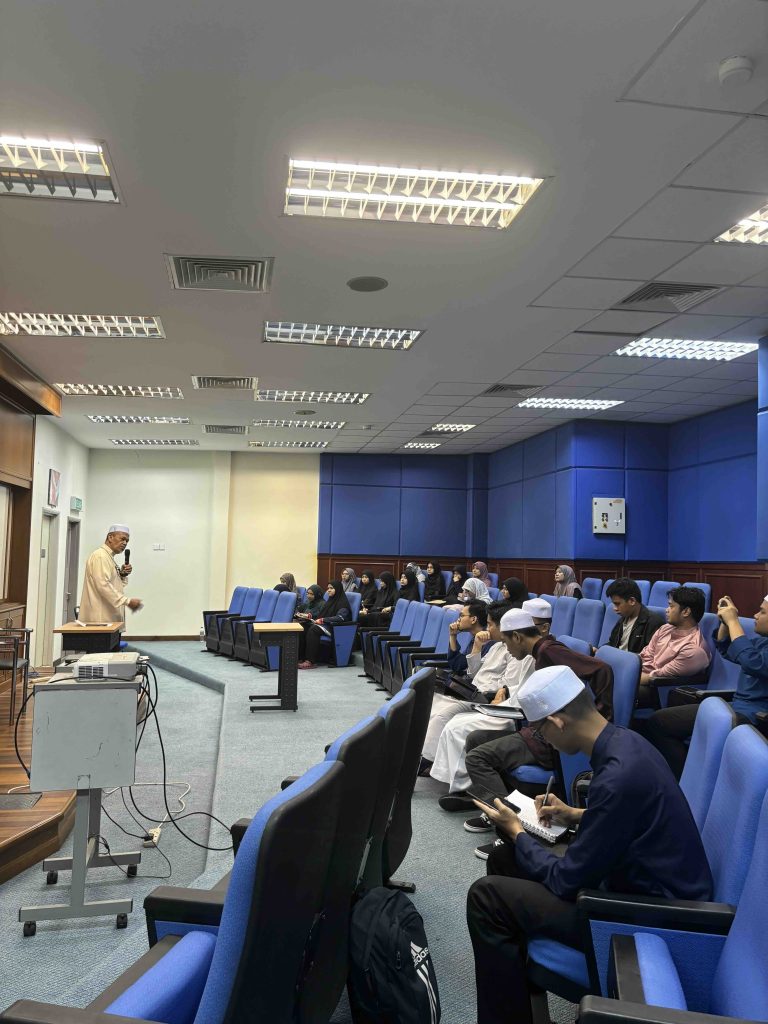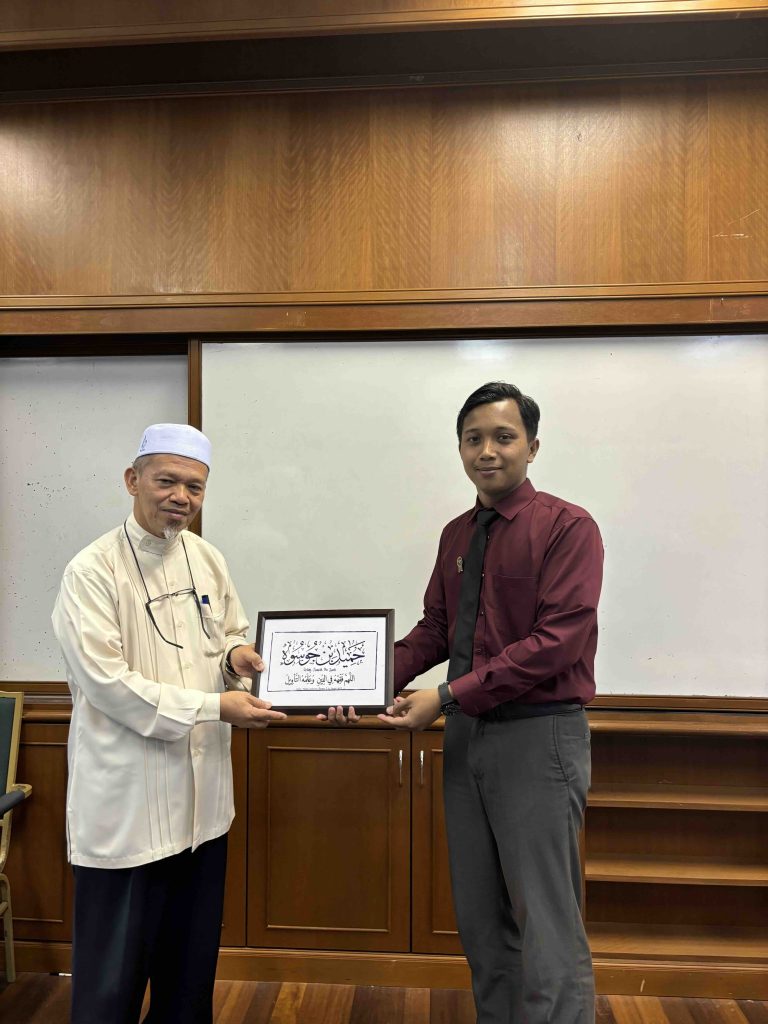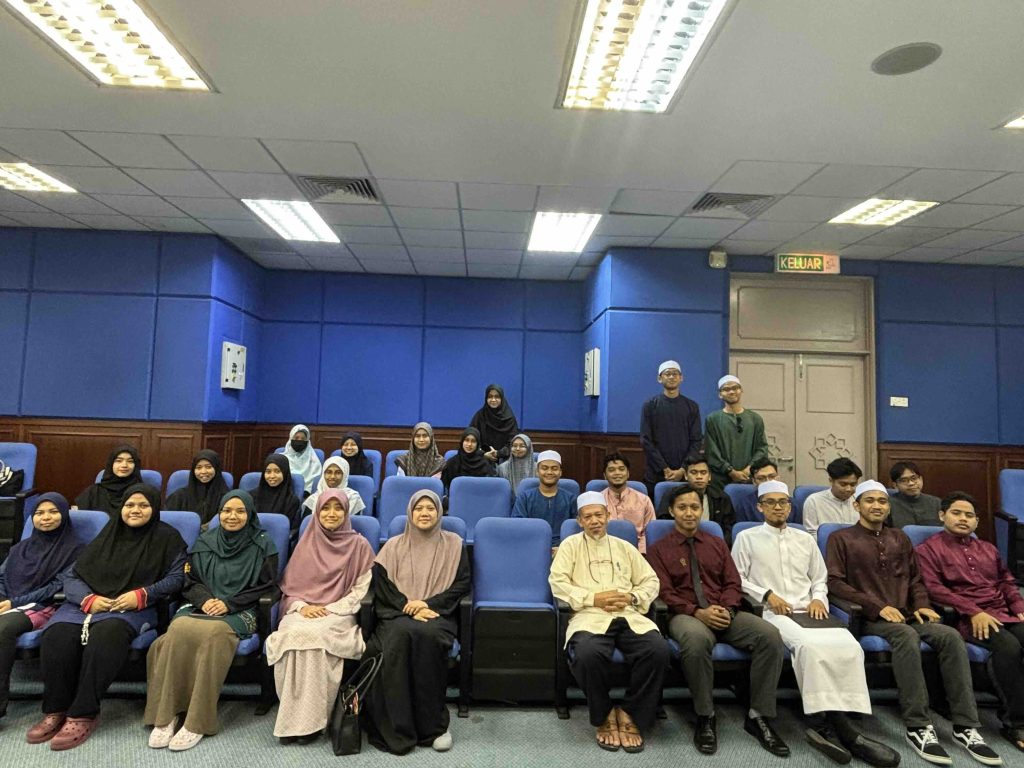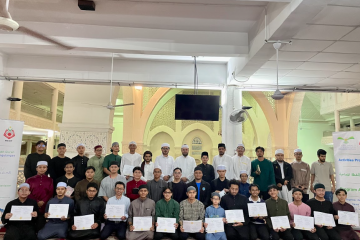1.0 Introduction
The talk “Jihad in Dakwah: Lessons from the Battle of Badr” aims to inspire students in their dakwah efforts. By reflecting on the Battle of Badr, students can learn valuable lessons in perseverance, unity, and strategy. These principles are crucial for students balancing academic life and their commitment to spreading Islam. The talk emphasizes that jihad in dakwah involves intellectual, spiritual, and social efforts. It encourages students to face modern challenges with faith and determination.
2.0 Details of the program:
Date: 21 March 2025 (Friday)
Time: 3.00 p.m. – 5.00 p.m.
Venue: Mini Auditorium, E1, Kulliyyah of Engineering
Speaker: Ustaz Hamid bin Jusoh
Participants: Open to all IIUM students
3.0 Summary of the program
At the beginning of his talk, Ustaz Hamid bin Jusoh shared the significant history of the Battle of Badr, one of the most pivotal events in early Islamic history. The Muslim army, consisting of just 313 men, faced a much larger force of 1,000 non-believers. Despite this overwhelming disparity in numbers, Allah granted the Muslims victory through His divine intervention, sending angels to assist them. The battle took place during the blessed month of Ramadan, further emphasizing the significance of this momentous occasion. This story serves as a powerful reminder of the strength and resilience that comes with faith in Allah, as well as the importance of trusting in divine help when facing overwhelming challenges.
Ustaz Hamid then moved on to discuss the crucial role of politics in the world of dakwah, emphasizing that politics, when approached with good intentions and integrity, can be a positive force. Unfortunately, politics often becomes corrupted when individuals or groups use it for personal gain, manipulation, or to further selfish interests. He argued that, within the context of dakwah, it is essential to engage with politics in a way that fosters justice, equity, and the welfare of society, rather than allowing it to become tainted by greedand dishonesty. Politics should not be viewed as inherently bad; rather, it is the actions of individuals that can either purify or corrupt it, and it is up to those involved in dakwah to use it as a tool for the greater good.
Drawing upon the stories of our great leaders and prophets, Ustaz Hamid also made connections to the leadership qualities of figures such as Prophet Ayub, Prophet Ibrahim, and Prophet Ismail. He pointed out the immense patience, trust in Allah, and steadfastness these prophets displayed in the face of trials and adversities. Their unwavering faith and resilience in their missions serve as a source of inspiration for our leaders today. Just as the prophets remained focused on their divine purpose, contemporary leaders are called to embody similar qualities of integrity, patience, and faithfulness in their leadership roles, ensuring that their actions align with the values of justice and mercy in Islam.
Finally, Ustaz Hamid emphasized the importance for young people involved in dakwah to cultivate an open-minded approach. It is essential for them to listen to and engage with the perspectives of others, rather than becoming rigid or overly attached to one viewpoint. In the world of dakwah, a narrow-minded or biased approach can limit growth and understanding, hindering the potential for meaningful change. He encouraged youth to be open to constructive criticism, to embrace diversity in opinion, and to approach others with respect and humility. By doing so, they can ensure that their work in dakwah remains inclusive, dynamic, and impactful, fostering a community that learns, grows, and works together to spread the message of Islam with wisdom and compassion.
Following that, a practical session was held to enable all students to apply the knowledge shared by Ustaz Hamid and the students immediately engaged in a Q&A session, posing several questions to her.
In conclusion, Ustaz Hamid’s talk highlights the timeless relevance of the lessons from the Battle of Badr, offering valuable guidance for young people involved in dakwah. By reflecting on the virtues of perseverance, integrity, and open-mindedness, students can approach their roles in dakwah with renewed purpose and confidence.
Prepared by:
Muhammad Izzul Irfan bin Mohd Hazib
Head of Hifzul Islam
Huffaz Madani Leadership Program
Approved by:
Raja Nur Farhani Binti Raja Mohd Azan
Secretary
Huffaz Madani Leadership Program

Picture 1 : Ustaz Hamid is giving a sharing about Jihad in Dakwah

Picture 2 : Token of Appreciation session to Ustaz Hamid.

Picture 3 : Photography session with Ustaz Hamid bin Jusoh and the participants.


